Following are the video and slides for my Neovimconf 2024 presentation. The playlist for all conference talks is on youtube.
State of Neovim 2024: The Giants Have No Timeouts
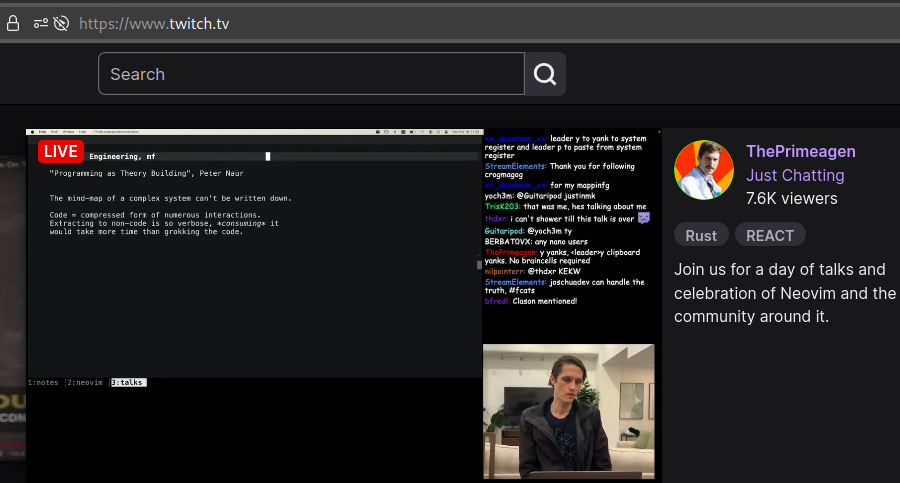
Video
What will you get out of this talk?
- backstory
- motivation
- current status
- plans
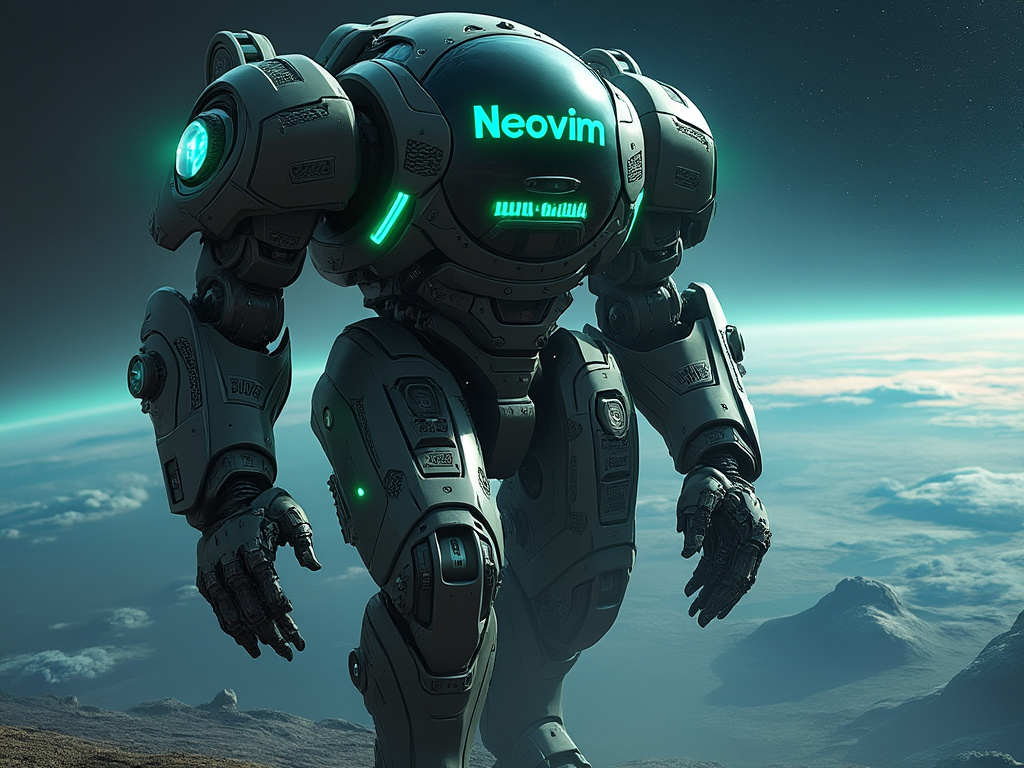
Ten years
No commits for 4 days. Is Neovim dead? – reddit user (2015)

Me
- Justin M. Keyes https://sink.io/
- Nvim maintainer since 2014.
- Roadmap https://neovim.io/roadmap/
- Vision https://neovim.io/charter/
- Docs
- Release management
- Decision fatigue
- Previous talks
- 2016: https://youtu.be/9Yf3dJSYdEA
- 2017: https://youtu.be/wQh7saOHE5g
- 2019: Vimconf keynote https://youtu.be/Bt-vmPC_-Ho
- 2021: Neovim roadmap https://youtu.be/4bTj0yBzrLU
- 2022: State of Neovim https://youtu.be/IFACLbpqRB4
- 2023: State of Neovim https://youtu.be/pmLn5pFu27k

Outline
• [WHENCE]: WHERE DID WE COME FROM?
• WHY
• WHAT
• WHITHER
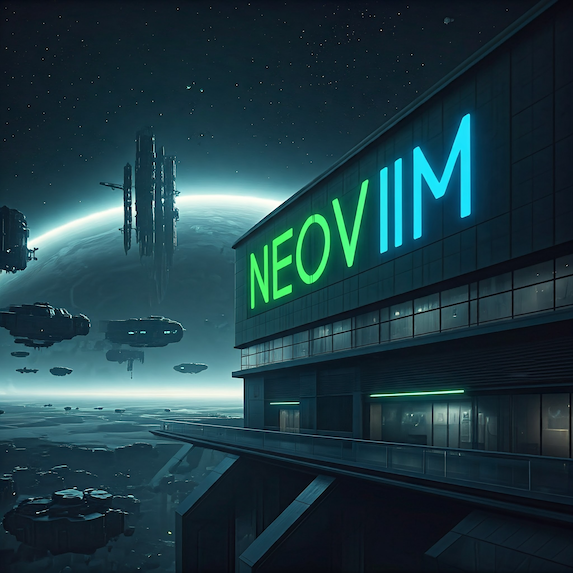
Lore
- 2019: the case for legacy; Nvim vs Vim
- “more Lua in core, more stdlib, more ergonomics”
- features, UI ext, GUIs
- 2021: all-in Lua, no Vim9script
- Deletion is synthesis. Don’t accumulate indiscriminately.
- 2022: asteroid mining: channel the energy
- Automation, tech debt
- 2023: space colony: scaling contribs, human coord
- Architecture, interfaces
- 2024: external factors: warp drive for space colony
- Move fast
Lore: Neovim legacy, next steps
- ed: line-addressable editing language
- vi: normal-mode (AKA ex 2.0)
- vim: +textobjects, +eval (Vimscript)
- nvim:
--embed(hosted)- API (host)
- nvim -l (composable)
- org (humans)
Lore: Vim way (2019)
Which of these will be relevant in 5-10 years?
- ✅ Modes
- ✅ Macros
- ✅ Common conventions (re-use concepts)
- ✅ Optimize ad-hoc: :nn instead of set_mapping()
- ✅ Leverage external tools
- ❌ DWIS not DWIM
- ❌ Keystroke-driven: gj instead of move_cursor()
Outline
• WHENCE
• [WHY]: WHY ARE WE WORKING ON NVIM?
• WHAT
• WHITHER
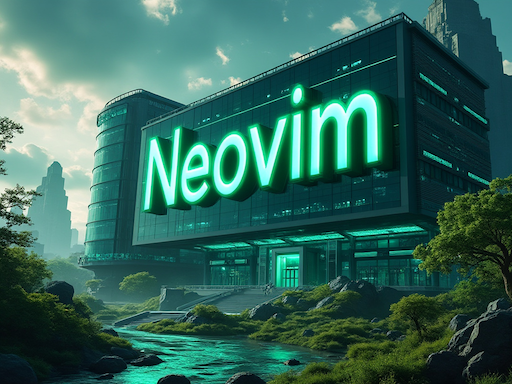
Why
- minimalism
- text UI
- control/extensibility
- optionality
- ecosystem (legacy/inertia)
- excellent people
…idk
Why
Beauty is our business. — Dijkstra
(leverage)
Why indeed
High-demand products, derided as frivolous:
- video games => GPU
- internet => search
- ecommerce => logistics
- social media => datacenters, training data
- vim fork => :terminal, async
- nvim lua => 10x plugins
- bitcoin => ?
IOW: just do it.
- “Inverse vandalism.”
- “Beauty is our business.”

https://x.com/justinmk/status/1805593478371430402
Why: optionality
- Don’t need to guess the future, only prepare
- Hosted in vscode editor (or any non-modal editor)
- Hosted in firefox/chrome (firenvim)
- Extensible into a full app (lazy, nvchad, astro)
be a capybara or tardigrade
https://x.com/fluffypony/status/1630954206298292232

Why: big things have low optionality
- vscode
- intellij

Why: optionality, Nvim chooses “power”
The expression problem: conflicting “design duality” between power vs properties.
- Adding a property limits power.
- Constrain “system boundary”.
https://www.tedinski.com/2018/02/27/the-expression-problem.html https://blog.higher-order.com/blog/2014/12/21/maximally-powerful/

Why: optionality, Nvim chooses “power”
- Nvim plugins are maximally unconstrained (ad-hoc).
- But we have an organism for lifting properties
into the system boundary.
- Examples: extmarks, lsp, shada
- TODO: plugin namespaces, perf monitoring, packspec
- But we have an organism for lifting properties
into the system boundary.
- OTOH, Nvim itself is an “eldritch object” (not a “cuddly object”). But it’s small enough to be a primitive (narrow waist).
- The system boundary of Nvim is:
- architecture
- invariants
- documented patterns/practices

Why? compared to other projects
- vscode:
- ✅ isolated plugins, UI protocol
- ⚠️ TUI, modes(!), ad-hoc, macros
- data science (telemetry) ~ agile consulting 2.0
- zed:
- ✅ CRDT, “vim macros”
- ⚠️ TUI, modes(!), ad-hoc (no Lua), 20+ mins build-time
- ?
- brain–computer interface (BCI)?
(irrelevant: AI)

Why
Why fork vim / why start from scratch (2019)
- Text editing is hard: multibyte, layout, cursor positioning, line-wrapping.
- Vim iceberg: shell handling, encoding, completion, Vim regex, quickfix … Massive plugin archive.
- Nvim: Focus on usability and extensibility => remove anti-features, dead-ends.
If “text editing” becomes a primitive (e.g. a high-quality rust library, anaologous to “rg”)… Nvim can consume it. That exercise will tell us what remains.
Why: harmony
- “Regular” syntax (nested, homoiconic, (foo(bar(…))))
vs irregular free-form/“command”/“chat” syntax
(DWIM, ad-hoc, throwaway)
- vim/vi DSL = ad-hoc, interactive
- Example:
:foo - Example:
nvim --remote +'foo' - Homoiconic macro DSL (even when keyboards are
obsolete, need “roundtrippable”,
human-readable format for macros).
- Used for repeat, mappings (saving to config), throwaway scripting, macros.
- Example:
- “regular” syntax for programming, not for interactive.
- For interactive: most systems (except emacs)
end up reinventing an interactive DSL.
- Example: IRC/Discord
/foocommands.
- Example: IRC/Discord
- vim/vi DSL = ad-hoc, interactive
Why: “start over” vs “harmony” (legacy leverage)
- “start over”
- helix (kinda both: editor from scratch, but leverages lua/ts/cargo)
- rust (hostile to C legacy)
- Xi editor
- Smalltalk
- urbit (reinvents everything)
- “harmony”
- zig (harmonious with C, fully replaces cmake)
- lua (FFI harmonious with C)
- nvim
Effing the ineffable
- Who cares about extensible tools?
(editor/vim/emacs)? (hackable)
- A: non-extensible tools are like “shopping”, not “developing”. (build vs buy)
- Why is it so hard to automate my OS?
- vscode: create a mapping that automates a set
of actions?
{ "foo" : [ "cmd1": [ "arg1", "arg2" ], "cmd2": [ "arg1", "arg2" ], ]} - hackable: linux, raspi
Effing the ineffable
- Who cares about minimalism (essentialism)?
- x86 variable-length ISA greatly complicates its pipeline, vs ARM: https://youtu.be/Zr09I5OlOjs
- ARM’s open licensing helps to avoid “innovators dilemma”.
- format => presentation, not vice-versa!
- why was Knuth preoccupied with typesetting?
- why was Apple preoccupied with typography?
- vscode/vs/eclipse represent the best that $1B can offer. Minimalist = “bloat skeptics”. Want to avoid depending on a incomprehensible blob.
- every node goes dark over time. After 4 years, this page has expired ssl cert and 10+ broken links: https://blog.darknedgy.net/technology/2020/05/02/0/index.html
- net will denormalize to avoid censorship/control => your life’s work needs to fit in a git repo, stored in “forever formats”.
- x86 variable-length ISA greatly complicates its pipeline, vs ARM: https://youtu.be/Zr09I5OlOjs
Who cares about minimalism (essentialism)?
- Joe Armstrong: more software = more entropy
- “The Mess We’re In” https://www.youtube.com/watch?v=lKXe3HUG2l4
- Rich Hickey: simple is not easy
- Gary Bernhardt: Destroy All Software
- Alan Kay: “Computers are beautiful. But we have a know-nothing culture trying to use them.”
- Jonathan Blow: revisit software foundations/history
Vscode is a loooooooooooot of software, and rapidly growing.
- Minimalism = Usability “via negativa”
- Perlis-Thompson Principle: Software with fewer concepts composes, scales, and evolves more easily. https://www.oilshell.org/cross-ref.html?tag=perlis-thompson#perlis-thompson
Effing the ineffable
- Why text UI (TUI)?
- “remote desktop” UI to any machine
- kitty/ghostty are raising the bar of the “lowest common denominator”.
- macros (predictability, accessibility)
- no DRM, no ads. it’s the speakeasy of the information age. escape-hatch from the browser hegemony.
- https://www.terminal.shop/
Why: what motivates me?
- 2019 central questions:
- does vim need a fork/lua/terminal/jobs/treesitter?
- does the world need more vim?
- 2024 central thesis: we have…
- excellent people
- about to unlock huge potential. want to see where it leads.
Outline
• WHENCE
• WHY
• [WHAT]: STATUS OF THE PROJECT
• WHITHER
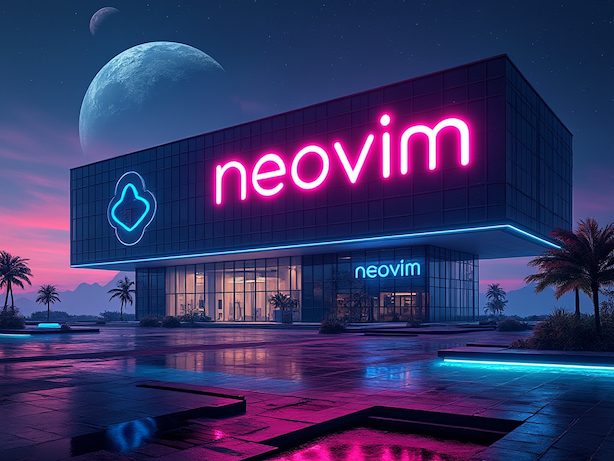
Status
- Build from source in <5 min (
make distclean && make=> 57s!) - GitHub downloads: 5.8M (2023: 3.2M, 2019: 310k)
- Homebrew: nvim=373k vim=296k (2023: nvim=220k vim=238k)
- Stackoverflow survey: “most loved” (4 years!)
- /r/neovim 107K (2023: 69k, 2019: 11k)
- /r/vim 178K (2023: 163k, 2019: 90k)
- Vibe: …a lot of users
- Contributors: 1386 (200 from Vim) (2023: 1160)
https://formulae.brew.sh/ https://survey.stackoverflow.co/2024/technology#2-integrated-development-environment
Status
- https://dotfyle.com/neovim/plugins/trending
- mindshare/marketshare:
- neopopes
- echasnovski
- folke
- mfussenegger
- nvchad
- neopopes
Status: Funding
- https://github.com/sponsors/neovim
- Where do donations go?
- 100% WORK.
- Full-time dev 1+ month
- Zero overhead
- 13+ developers since 2014
- 2024 work:
- unicode handling, redraw, msgpack, arena allocator
- options subsystem
- UI extensibility (messages grid)
Org: Maintenance
Maintenance lacks the glamour of innovation. It is mostly noticed in its absence. https://www.economist.com/finance-and-economics/2018/10/20/repair-is-as-important-as-innovation
“Tradition is not the worship of ashes, but the transmission of fire.” — Gustav Mahler
maintenance latent knowledge theory building legacy asteroid leverage
Status: Nvim STABLE (0.10)
- 0.9
- ’exrc’, “trust database”
- ‘statuscolumn’
$NVIM_APPNAME- Lua script runner:
nvim -l
- 0.10
- Concept consistency win:
- nvim_open_win ✓ supports all window kinds (float and split) ✓ floating windows work just like regular windows
- Type annotations for vimscript, api
- Default colorscheme
- LSP inlay hints
- TermRequest, TermResponse
- treesitter: builtin parsers for bash, markdown, python
- comment plugin
- vim.snippet, vim.iter, vim.system
- vim.lpeg, vim.re, vim.glob, vim.base64
- url hyperlinks (OSC 8)
:[range]luavim.api.nvim_open_win(0, false, {relative='win', border='double', row=3, col=3, width=60, height=10})
- Concept consistency win:
Status: Nvim HEAD (0.11)
vim._with()(lewis + dundar + echa!)- Unblock via internal/private functions.
- UX: right-click “Go to def”, “Open in browser”
- improved unicode/emoji/casefolding, utf8proc, drop src/unicode/ (40k loc) #29628 #30014 #30042
- every successful app eventually gains a markdown parser… why?
- answer: just like ASICs (sha256, h264), the cooling phase of simulated annealing forms solved problems into hardware instead of software.
- xterm is “hardware”, markdown is “hardware”, …
- Alan Kay: “Nothing less soft than a legacy
system; nothing softer than a buggy system”
- soft = ad-hoc
- hard = rust
- “Ontogeny Recapitulates Phylogeny” (Tanenbaum) = “embryos go through all of stages of evolution”
- answer: just like ASICs (sha256, h264), the cooling phase of simulated annealing forms solved problems into hardware instead of software.
Status: remote TUI
nvim --remote-ui
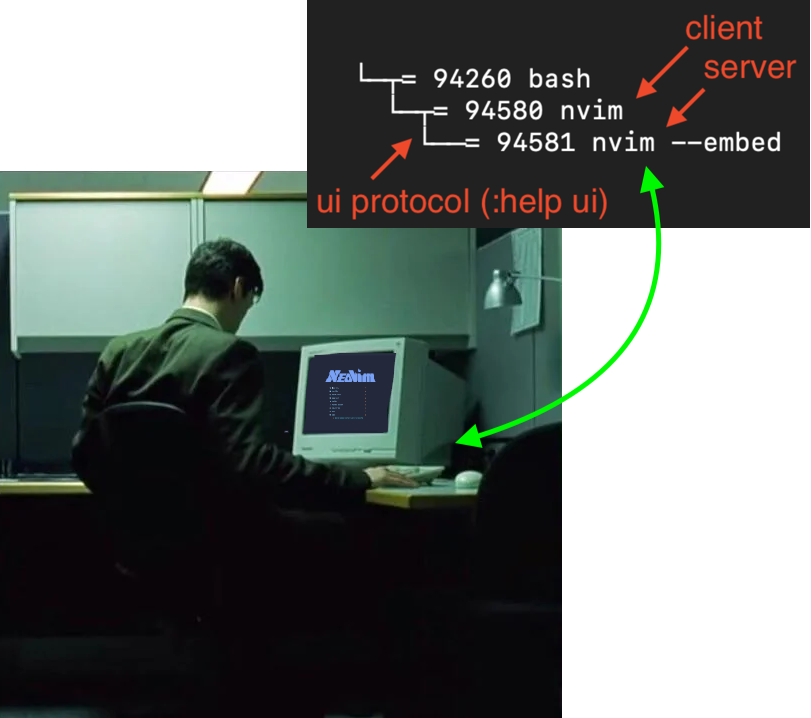
Status: “daemon mode” [count]<c-z>
- “daemon mode”
[count]<c-z>
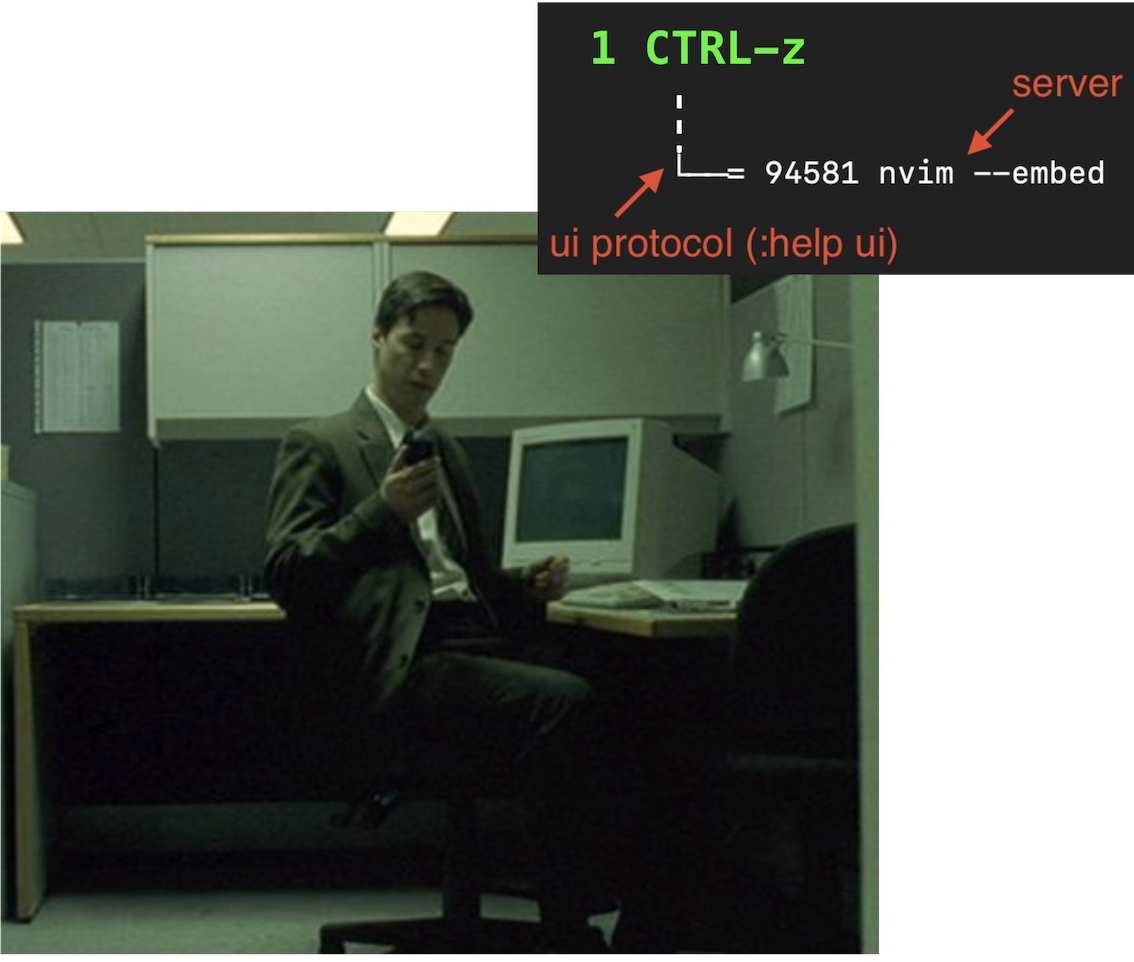
Status: progress in 2024
- Lspconfig nearing maturity.
- ✅ cleanup, migrate to checkhealth, automate/generate more.
- WIP: lift lspconfig into core (@gpanders)
- WIP:
vim.lsp.config, configs on ‘runtimepath’.
- Lsp autocompletion
- Lsp multi-client (same buffer)
- Performance
- rpc/arena allocator
- redraw
- treesitter
- lsp semantic tokens #31117
- vim.validate
- vim.str_byteindex, vim.str_utfindex
- Improved paste handling for redo/macros.
- Defaults: LSP, snippets, vim-unimpaired
- :TOhtml Lua+ts rewrite
Status: progress in 2024
- WIP: Options refactor+extend (@famiu, examples: #31111 #30993)
- Enables us to fully leverage options instead of
module-specific inner platforms.
- Example: default floating window style: #20202
- Enables us to fully leverage options instead of
module-specific inner platforms.
- Builtin UI declares nvim_set_client_info() on its channel.
- WIP: in-process LSP #24338
- WIP: remote TUI “detach”/reattach
- EXPERIMENTAL: treesitter WASM
Status: writing things down
Humans are exposed to neurobiological failures (attention engineering, rage farming). But our superpower is the ability to coordinate with narratives. — David Shapiro
Alan Kay:
- systems aren’t stories (no start/finish, just
processes), thus hard for human brain to grasp.
- Human inventions (systems) accelerating » faster than human genetics/collective wisdom (stories).
- cf. Tony Hoare “Debugging harder than programming”
- cf. Einstein: “We cannot solve our problems with the same levels of thinking we used to create them”.
https://www.youtube.com/watch?v=iyMk7Aa76qM&t=788s
Status: writing things down
“Understanding variation is the beginning of knowledge.”
- routine variation is present in every natural process
- setting a target does not in itself help achieve that target
– W. Edwards Deming / Statistical Process Control
Status: writing things down (2024)
- treesitter distribution @clason #22313
- upstream coord: versioning/conventions
- capture groups
- queries
- dist: WASM
- lsp.buf “continutation” proposal #31206
- vscode-remote ssh
- Lua guidelines (also useful for helix/mle/vis/roblox)
- Event interface
- RPC callbacks #8658
- Lua structured concurrency, promise/future
- simplify remote plugins, massively #27949
- “culling of vim.lsp.util”: #25272 @gpanders narrative
=> mature interface for
vim.str_utfindex() - “vim.ui enhancements”: #25514 @gpanders narrative
=> fully-formed
nvim_open_win, etc. - lsp handlers/multiclient redesign #30982
Status: Engineering, mf
“Programming as Theory Building”, Peter Naur https://pages.cs.wisc.edu/~remzi/Naur.pdf
The mind-map of a complex system can’t be written down.
Code = compressed form of numerous interactions. Extracting to non-code is so verbose, consuming it would take more time than grokking the code.
https://x.com/justinmk/status/1750335701059596659
Status: Engineering, mf
- eliminate rbuffer.c (unnecessary indirection): @bfredl #29141 #29106
- eliminate libmsgpack, favor libmpack @bfredl #29358 #29467
- eliminate msgpack_sbuffer #29241
- use mpack in shada, update conversion logic, remove libmsgpack: #29540
- positions shada for more “shared database” things.
- gen_vimdoc.lua, replace lua2dox (lewis)
- echa found that vim.deprecate was slow in hot loops. Narrowed to vim.validate. gpanders/echa/bfredl made them fast.
- build.zig => cross-compile magic
- treesitter wasm/webassembly
Status: plugins 2024:
- render markdown in-editor: https://github.com/OXY2DEV/markview.nvim
- https://nui-components.grapp.dev/
- showkeys
- Things you can* do with a text UI (TUI): NUI
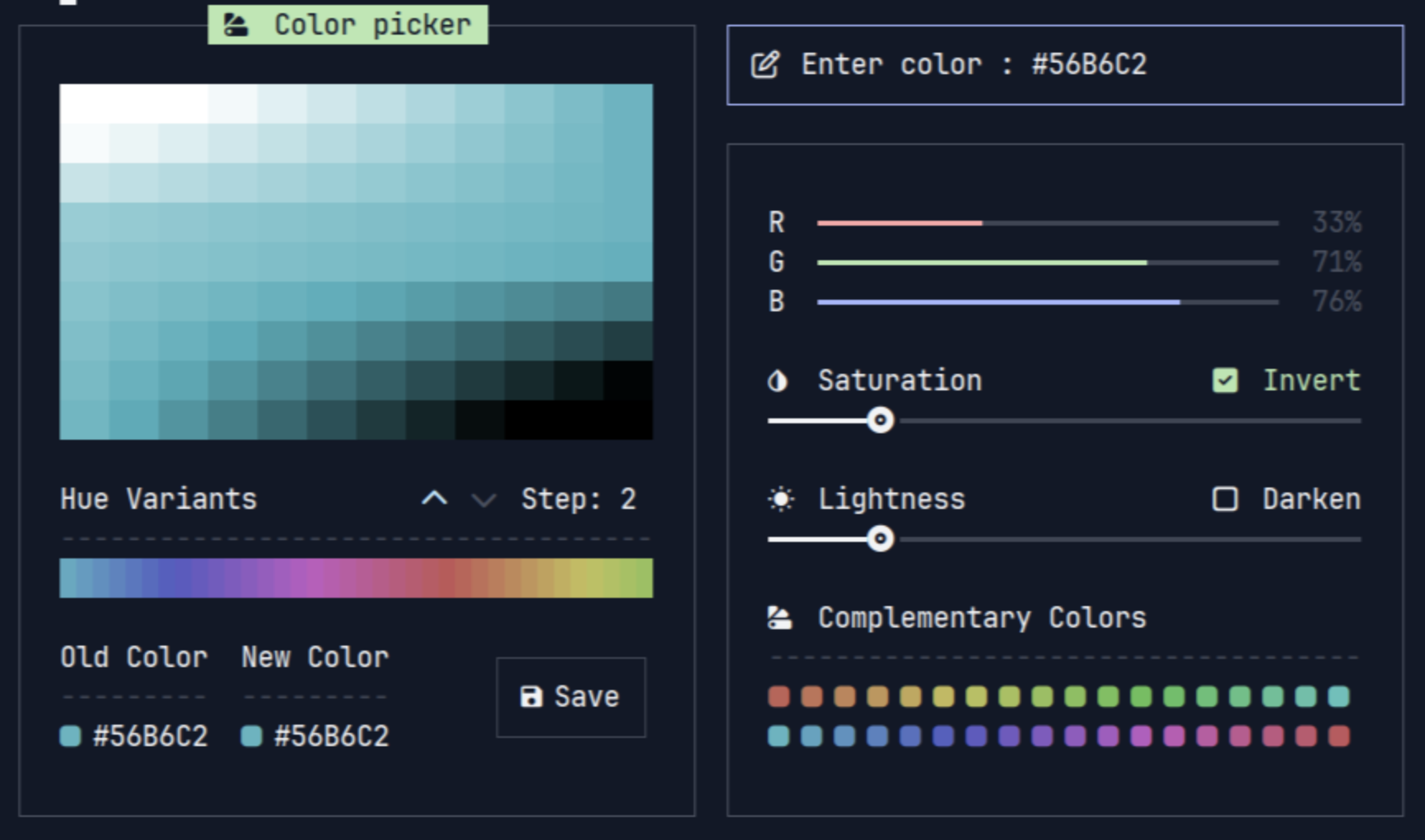
Lore: no third ecosystem
Ecosystems tend to be winner-takes-all (80% of users will use the top few, the rest is “long tail”)
Windows Phone was actually an amazing platform for both users and developers, and shows a fundamental rule of technology: There Is No Third Ecosystem."
- former Nokia employee https://news.ycombinator.com/item?id=16370602
Vscode is the first ecosystem. Vim has always been the second ecosystem. But it’s first for the “modal” subcategory.
Lore: no third ecosystem
Hemant Mohapatra https://x.com/MohapatraHemant/status/1258361814481375234
When distribution is proprietary, distribution wins (Comcast vs Netflix), when distribution is commoditized, best product wins (chrome vs IE), when product is commoditized, best service wins (Amazon vs others), when service is commoditized, best network wins.
- vscode marketplace is proprietary (no forks can use it)
- legacy/community has “network” effects
- vscode/zed/nvim are competing on “product” axis
- but vscode/zed are offering services (collab editing, settings sync, AI)
Status: risks, lingering problems, where are we failing?
- Still no Windows “owner”
- Too many topics (horizontal instead of vertical)
- Macros are not seamless.
- Potentially helped by multicursor internals.
- Concept creep:
- extmarks ~ “buffer annotations” ~ decorations ~ hl_attrs.
- cf. text properties (vim/emacs), overlays (emacs)
- extmarks ~ “buffer annotations” ~ decorations ~ hl_attrs.
Outline
• WHENCE
• WHY
• WHAT
• [WHITHER]: FUTURE
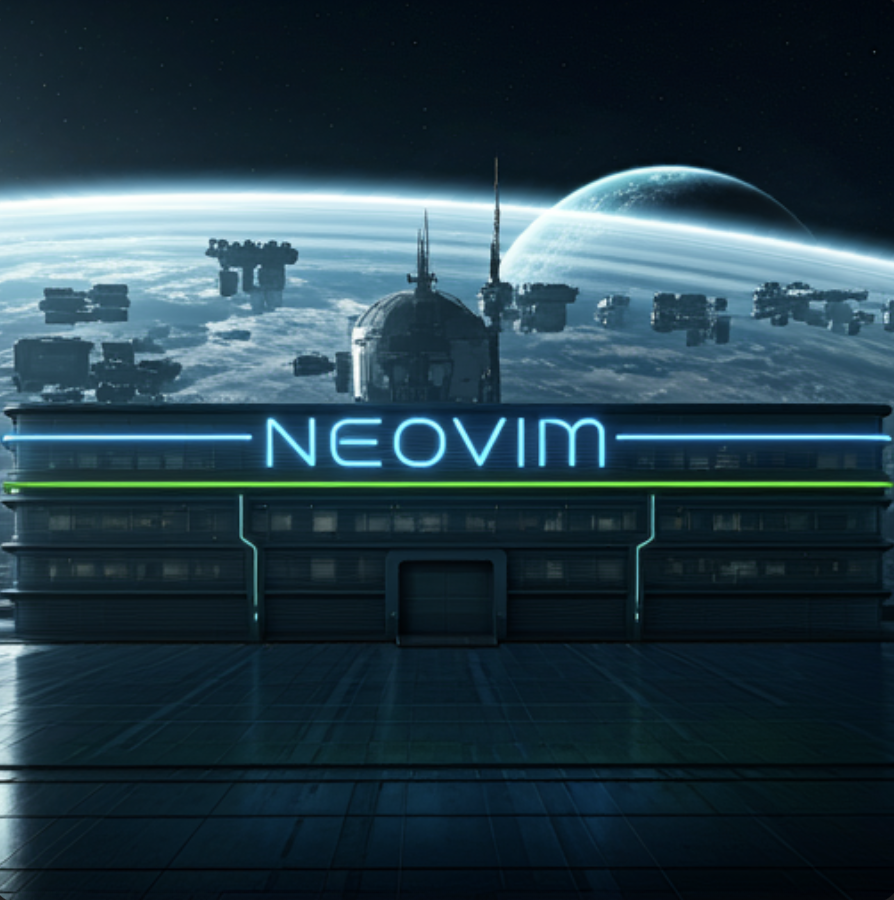
Future: positioning/strategy
- –embed (hosted)
- API (host)
- nvim -l (composable)
- org (humans)
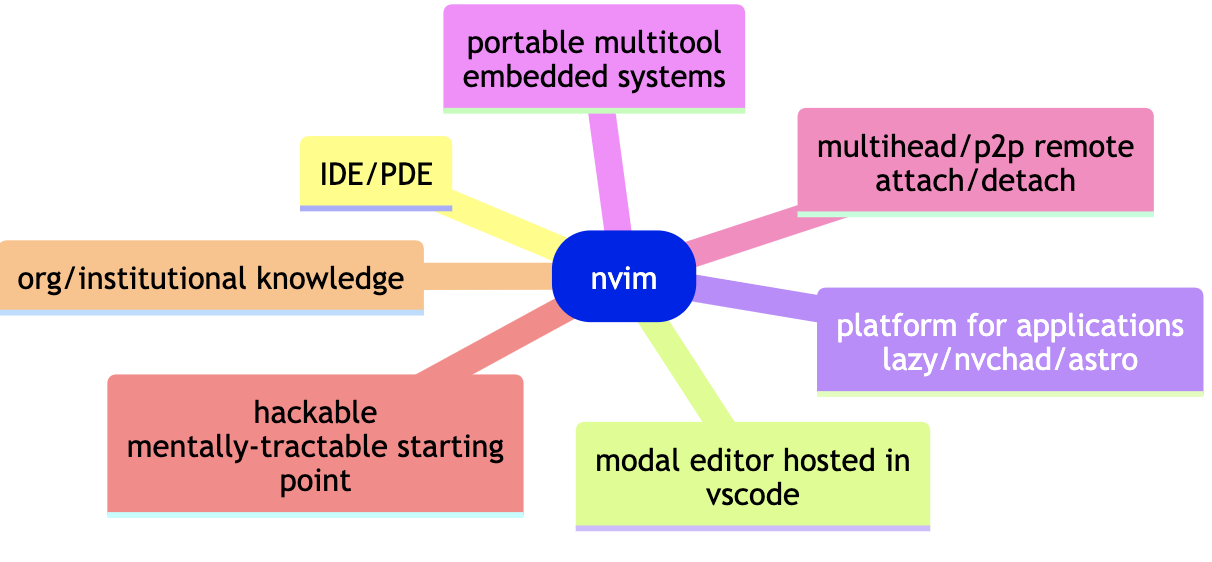
Future: positioning/strategy
Doesn’t this apply to all projects (vscode, intellij)?
- yes but,
- they are big => hard to pivot
- commercial projects tend to be goal-oriented instead of system-oriented
- employee turnover: low institutional memory/tradition, low idealism
- design-by-committee (“leadership”)

Future: constraints
- Cursor (enhanced context), AI chat (feature, not product)
- all editors will get this feature
- UI components (NUI)
- layout engine (instead: integrate primitives (e.g. image protocol), but don’t reinvent web browsers).
Future: 2025
- Press Enter is the primary UX evil.
- vscode feels nicer because it fails (errors) less noisily.
- try looking at Extension Host logs in vscode!
Error: telemetry-v2: recorder used before initialization at CallbackTelemetryProcessor2.callback (/…/sourcegraph.cody-ai-1.38.1/dist/extension.node.js:55629:17)
- try looking at Extension Host logs in vscode!
- @luukvbaal working on this. #27811
Excise the technical debt of “need_wait_return/msg_scrolled global juggling”. Instead Lua code decides in one place what to do with routed messages.
- vscode feels nicer because it fails (errors) less noisily.
Future: 2025
- It should “just work”.
- drag/drop files/images into the editor
- paste images/urls into the editor
- long lines / big buffers
- ‘autoread’
- Lua profiling
- Lua debugger
- Lua REPL
- shada/context
- Note: this is application-level stuff, instead of system-level
Future: 2025
- repeatable visual-first operations (kakoune/object-verb).
- multicursor
- debug/profile story for plugin development
- “online” plugin performance tracing
- detect and report badly-behaving plugins (plugin namespaces?)
- primitives for AI assistant
- gathering context to send to LLMs
- displaying responses
- using responses (copy-paste, completion)
- chat
- “presentation mode”:
- markdown: render hyperlinks, images
- keymap:
z<tab>or<backspace>
- image API #30889
- stdlib
- forming an “async” story #19624
Future: packspec (pkg.json)
https://github.com/neovim/packspec
Future: builtin plugin manager
minimal git-based plugin manager. like “paq”.
Future: remote plugins v2
connect to more stuff
Future: deprecation strategy
Problem:
- some users exhausted by deprecation frequency
- some core devs exhausted by api maturation phase
- some core devs exhausted by legacy maintenance (opposite!)
Future: deprecation strategy
https://daniel.haxx.se/blog/2024/10/30/eighteen-years-of-abi-stability/
- “Application authors everywhere can always and without risk keep upgrading to the latest libcurl”.
- “Examples, documentation, applications, can just always upgrade and continue. … Possibly the single most important property of curl.”
Future: deprecation strategy
The cost of deprecations is:
- HIGH: managing the migration lifecycle (for hard deprecations)
- HIGH: downstream breakage (for hard deprecations)
- HIGH: face-huggers: permanent cognitive/discoverability
cost of documentation/api/autocompletion surface-area (for
both users and maintainers).
- Developers use old wrong thing as “precedent”.
- HIGH: bug fixes
- HIGH: presence of old “dead” code amongst “live” code.
- LOW: size/performance cost + presence of the code “somewhere”.
For “low-dependency/complexity” interfaces, we can totally eliminate 1-5, while paying the minor cost of 6, by:
- Refusing all maintenance / bug fixes
- Hiding the implementation in a “radioactive waste” area.
Future: deprecation strategy
:help api-contract has been very successful:
- Keep the old impl, but remove it from docs+autocomplete.
- That gets it mentally out of the way without breaking downstream.
- Works perfectly for “flat” (low-dependency/cyclic complexity) interfaces such as the API.
- Could work for flat lua functions/modules (treesitter,
vim.*).
Future: deprecation strategy
Upside:
- Greatly reduces the urge to remove the implementation, so legacy programmatic consumers can worry less.
- Eliminates face-huggers.
FAQ:
- “how is this different than vim’s never-remove-anything?”
- This applies to low-dependency/low-complexity things, not “subsystems” (e.g. cscope).
- Vim doesn’t remove docs/completion/etc.
Future: deprecation strategy
DEPRECATION STAGES:
- soft
- radioactive waste <= we are adding this stage
- hard (removal)
EXAMPLE USE-CASES:
- rpcnotify/rpcrequest. Should be shadow-banned but not removed, it’s too disruptive to remove them.
- Vimscript
timer_start()vsuv.timer_start().timer_start()is needed for back-compat, but showing it in docs and completion is noise, because it is redundant withuv.timer_start().
Future: deprecation strategy
Example: if vim.lsp.foo gets deprecated,
- it is unsupported, won’t get fixes/improvements
- it no longer shows in autocomplete
- removed from documentation
- removed from meta
- its impl is moved to
deprecated.lua
Future: 20XX
- multihead:
- q: if you can share shada/buffers/layouts amongst peers, do you actually need multihead? a: optimize server discovery + ‘autoread’ + shada
Future: actual macros
If a UI session can emit itself as code, system feels alive, composable. Narrow waist, more leverage.
Various attempts:
- vim/emacs macros
- macOS Automator
- curl –libcurl
- AWS Console-to-Code https://infoq.com/news/2024/01/aws-console-code-preview/
https://x.com/justinmk/status/1752088378873356557
Future: positioning/strategy
- Something interesting happened since 2014: while
Nvim was focusing on better TUI-GUI parity (from
both directions), the terminals kept improving.
- Even Windows Terminal supports xterm protocol.
- tui-modifyOtherKeys/CSIu fixed some old pain-points ( vs , “super”/cmd key, …)
- performance, clipboard, truecolor, mouse hover, ….
- But Neovide still feels astonishingly “smooth and fast”.
- We must support GUIs (“parallel tracks”).
Bundling vs unbundling
- Do both (host + hosted) = leverage
- Apps tend to excel at their own stack:
- emacs = elisp
- nvim = c, lua, treesitter (:InspectTree, :EditQuery)
- intellij = java, kotlin
- vscode = js/ts, LSP
- …so embedding-into those hosts is very powerful.
- Dropping :cscope caused worry, but
https://github.com/dhananjaylatkar/cscope_maps.nvim
2 years later is actively maintained, and has more
features than the old :cscope.
- Arranging topics for flexibility (outsourcing non-core concerns to plugins) allows faster iteration, higher quality. => “system boundary”
- cmake (shrink C core…) => zig build (shrink C core…) => rust?
Harness/jacket
- Examples:
- json, OCI containers
- raspi
- joint-stock company, limited liability
- ISO 6346 (shipping containers!)
Harness/jacket dimensions
iow: Neovim is a PDU (protocol data unit) that harnesses:
- modal user interface
- programmatic interface (Lua/RPC)
- continuous integration (CI) system to support rapid evolution
- human system (docs + chat + lore) to learn from the outside world
- engineering to connect libraries (treesit/zig/utf8proc/libuv) …and adapt to change
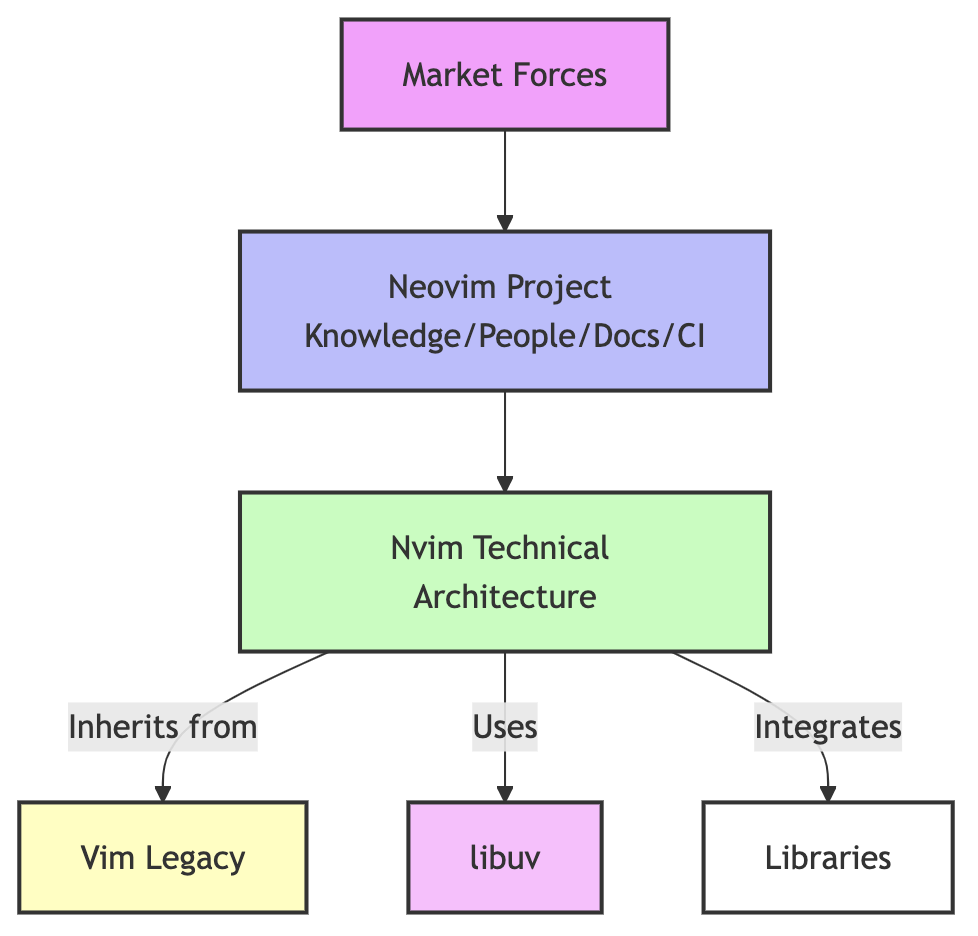
Harness/jacket: primitives
- :terminal is an elementary component (like buffer, pipe, pty). Not bloat.
- TUI features are primitives (image display)
- CLI composability is a primitive (“echo foo | nvim”)
Positioning: AI?
LLMs = personal exocortex (search engine).
like a personal nuclear-powered assistant
SEO = good for humans, good for AIs.
- If you don’t explain/document things for humans the AI will also be weaker.
2024:
- “:help vimscript-functions” lists return + parameter types.

Positioning: AI
write Nvim lua function that accepts a Lua pattern and searches buffer text surrounding the current cursor position, delimited by the previous and next occurrence of the pattern “^#”.
- how can we make it very easy/attractive for 3P AI plugins?
- improved RPC story (for nodejs/etc)
- wasm
AI fixes this?
Things that don’t exist:
- “compile” UI interactions to code.
- micro-language with single-file impl in java/.net/js/…. https://scrapscript.org only has a python impl.
- builtin instrumentation instead of mocks/spies.
- Can AI delete code?
Conclusion

END
